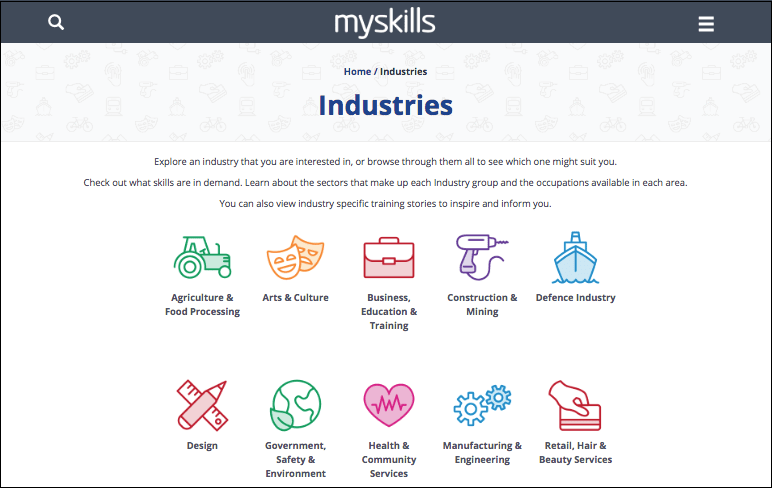Looking for a new job? One thing many people forget to do is research.
It’s so much easier to just take the first new thing that comes along. But without looking at all the angles, you might land a job that’s no better than the one you have.
There is a better way, and it’s easier than you think! Just follow these steps to make a decision you’ll be happy with.
Related: Time for a career change? Here are 8 ways to make the switch
5 steps to finding a job you’ll enjoy
If you truly want a job you’ll like, start by doing a little homework:
- Go online for free career advice.
- Listen to career podcasts.
- Go back to class.
- Clean up your social media.
- Use keywords in your resume.
Let’s dig into the five steps to finding a job that’s right for you.
How to find your new job

If you’re desperate to get out of a job, it’s tempting to just take the first thing you find. But spending a little time looking around will lead you to a change you’ll like much better.
1. Go online for free career advice
Your first stop? The Australian government. It has a Job Outlook website where you can learn the skill levels, annual incomes and expected growth or decline rates for a variety of jobs. After all, you might as well consider moving into a field that is looking for workers.
Right now, the future looks good in these industries:
- Health Care and Social Assistance
- Construction
- Education and Training
- Professional, Scientific and Technical Services
According to the government, almost two in every three new jobs created over the next five years will come from these four industries.
Your next step is to check out websites like these:
- Seek.com.au
- CareerOne.com.au
- LinkedIn Jobs page
- Katie Roberts Career Consulting
- Robert Half Career Consultant
These websites can give you tips and career advice that will help you in your search.
Related: How a growth mindset can redefine your career
2. Listen to career podcasts
Career podcasts are a great way to learn what’s needed to win that new job. You might start with this list:
- 48 days to the work you love
- Happen to your career
- Working
- How did you get into that?
- The experience conundrum
Podcasts are also time-wise because while you are commuting in a car or at the gym, you can also learn about how to get a new job.
Related: 9 small business ideas you can start at home
3. Go back to class
By now, you should have at least a short list of jobs you might like.

If any require a particular degree or certification, use the internet to find places that offer it. MySkills is a good source of training info for hundreds of jobs.
Whether you take classes online or in-person, this shows employers you’re serious.
It’s a good idea to check the ratings of any program before you enroll. In fact, why not call around and ask employers in your target field what training providers they recommend? You’ll want to make sure the classes are worth the time and money.
4. Clean up your social media
If you’re the sort of person who likes to promote hard party antics on social media, beware. Employers routinely check the social media accounts of job applicants.
Companies could look at your social media to see if you have any hidden values they don’t like.
If you have any records of outlandish behaviour on social media, you might want to make them private.
The good news is, you can do light stalking of any companies you have your eye on. Seeing how they respond to customers will give you an idea of their values.
LinkedIn is a great resource for learning about the job descriptions and work experience of the employees at a company. You might find that you have common achievements or even better qualifications.
If the company you’re researching has other employees with the same job description, you can see what level of academic achievement they have. You can then use this information to gain the same level of training to win your new job.
5. Use keywords in your resume

Today, many recruiters use applicant tracking systems (ATS) to sift through the hundreds of resumes submitted to job boards.
For example, an HR manager looking to hire a payroll specialist might enter ‘payroll specialist’ into their ATS in order to find only those applications that have that phrase in them.
This is why it’s important to use keywords in your resume. To find them, carefully read the job description of the role you’re applying for. Then add the exact phrases it uses — for example, administrative assistant, data entry, payroll — to your resume, if you have these skills. This will increase the chances that your resume will make it through the ATS screening.
Writing a good cover letter is key to getting your application to the next stage. If you’re not confident about writing a cover letter or resume, try one of the many resume-writing businesses online or in your local area.
The takeaways
To get a job you’ll want to wake up to, be patient and create a structured plan. Keep all your cover letters and resumes as templates to reuse. Never delete them, until you’re satisfied you no longer need them.
Take an interest inventory, seek out career advice from people you trust. Use the five steps shown above and you will be on your way to landing your dream job.
Good luck and stay confident.
Want to really impress your future boss? Create a website that shows off your skills, experience and personality.






